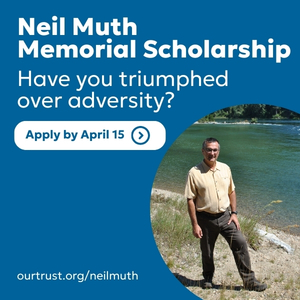
Wildsight applauds BC Supreme Court Mineral Rights ruling to reform the province’s mineral staking regime. The BC Supreme Court released its decision holding that the Province needs to change its free entry mineral claim system within the next 18 months to align with the United Nations Declaration on the Rights of Indigenous Peoples (UNDRIP).
The ruling is a result of the Gitxaała and Ehattesaht Nations’ joint legal challenge of one of British Columbia’s oldest colonial laws. Wildsight intervened in the Gitxaała case as a member of the BC Mining Law Reform (BCMLR) network and is applauding the momentum this legal decision creates for much-needed systemic changes required in the months to come.
“Reforming BC’s Mineral Tenure Act has been a priority for civil society for years. The 1859 free-entry regime was one of the first colonial laws in the province and still grants anyone the same certificate today with free and priority rights over more than 75% of the province,” said Jamie Kneen, co-chair of BCMLR network. “This ruling is a victory for aligning this law with UNDRIP.”
The BC Supreme Court victory mandates the BC Government to work with Indigenous Nations over the next 18 months to align mineral claim-staking with Indigenous rights, including by fulfilling the Crown’s duty to consult before granting mineral claims. While the Court did not endorse the requests by Gitxaała and Ehattesaht for orders quashing certain existing mineral claims and preventing new claims in their territories, the Nations’ evidence illustrated systemic issues that still need to be addressed and reformed province-wide.
“The ruling is clear that there are physical adverse impacts from mineral exploration. Mineral exploration is not benign and there are certain places — Indigenous cultural sites, key salmon habitat, community water sources — that should be no-go zones for mining activity. We hope to see the Mineral Tenure Act reformed to also better protect the environment,” said Nikki Skuce, co-chair of the BC Mining Law Reform Network.
“During the court proceedings, it was disappointing to hear the Province’s lawyers arguing that mineral staking and early exploration has no impact on Indigenous Nations and the environment when there is so much evidence otherwise. Thanks to the Gitxaała and Ehattesaht nations for bringing the case forward, and all the Nations and intervenors for clearly illustrating the systemic faults of the MTA,” said Adrienne Berchtold, SkeenaWild Conservation Trust.
The court case was also the first test of the provincial Declaration on the Rights of Indigenous Peoples’ Act (DRIPA). The judge ruled that while DRIPA is not itself enforceable, laws must be interpreted in a manner that protects Indigenous rights and is consistent with UNDRIP.
“The Province has been celebrated for enacting DRIPA but this ruling feels a bit like a betrayal to the intent of the Act,” said Casey Brennan, Wildsight. “We hope that the province works with Indigenous nations to ensure that Free, Prior and Informed Consent (Article 32 of UNDRIP) is part of BC’s new mineral staking regime.”
Founded in 2019, the BC Mining Law Reform network is a public interest initiative that promotes changes to mineral staking laws and mining practices to ensure they minimize risks to the environment, respect community decisions, and that the polluter pays to clean up toxic mine waste sites.




























